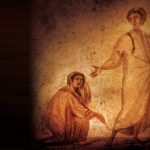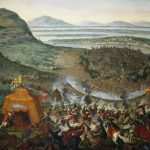In this short review, Dr. David Ford writes that "The Ethics of Beauty" by Dr. Timothy Patitsas "...has already brought for many people life-changing healing and personal reconciliation with God and with others." Patitsis covers a wide range of topics to show how Dostoevsky's dictum "Beauty will save the world" has practical application in our contemporary world. The … [Read more...] about Book Review: The Ethics of Beauty
The Wider World
The Dystopian Nightmares of Orwell’s 1984 and Huxley’s Brave New World
As a new regime takes office in Washington, utopian dreams are reigning in high fashion. A good time, no doubt, to reflect two classic novels warning of the dystopian danger that invariably arises when utopian fantasies are implemented at the expense of both human nature and truth itself. This essay by Arthur W. Hunt III offers an excellent, comparative primer on these two … [Read more...] about The Dystopian Nightmares of Orwell’s 1984 and Huxley’s Brave New World
Analyzing the “New Totalitarianism” of Today
Italian philosopher Augusto Del Noce (1910–1989) argued prophetically more than half a century ago, that modern technology was being used to implement a “quiet totalitarianism,” one that by avoiding the overt violence of the Nazi and Soviet regimes, could quietly exercise the same absolute control within society. Totalitarian systems, he explained, … [Read more...] about Analyzing the “New Totalitarianism” of Today
St. Porphyrios On Prophecy and Repentance in Times of Peril
When we sense that our sins are leading us toward a dark and perilous outcome, individual Christians know to stop and pray and repent. But when we hear that our "collective" actions are leading us into darkness, too often our tendency is to look for conspiracies and cast out nets of collective blame. But neither collective subjects nor collective objects actually exist: only … [Read more...] about St. Porphyrios On Prophecy and Repentance in Times of Peril
Not Merely Islam: C.S. Lewis Assesses the Religion of Mohammed
Until relatively recently writes Jacob Fareed Imam, what we call Islam today was most often called "Mohammedanism." Islam was understood for centuries as a Christian heresy, a definition that began with St. John of Damascus (d.749) in his work "Heresies" and continued well into modernity. "All great heresies are known by their founders (e.g., Marcionism, Arianism, Nestorianism, … [Read more...] about Not Merely Islam: C.S. Lewis Assesses the Religion of Mohammed




